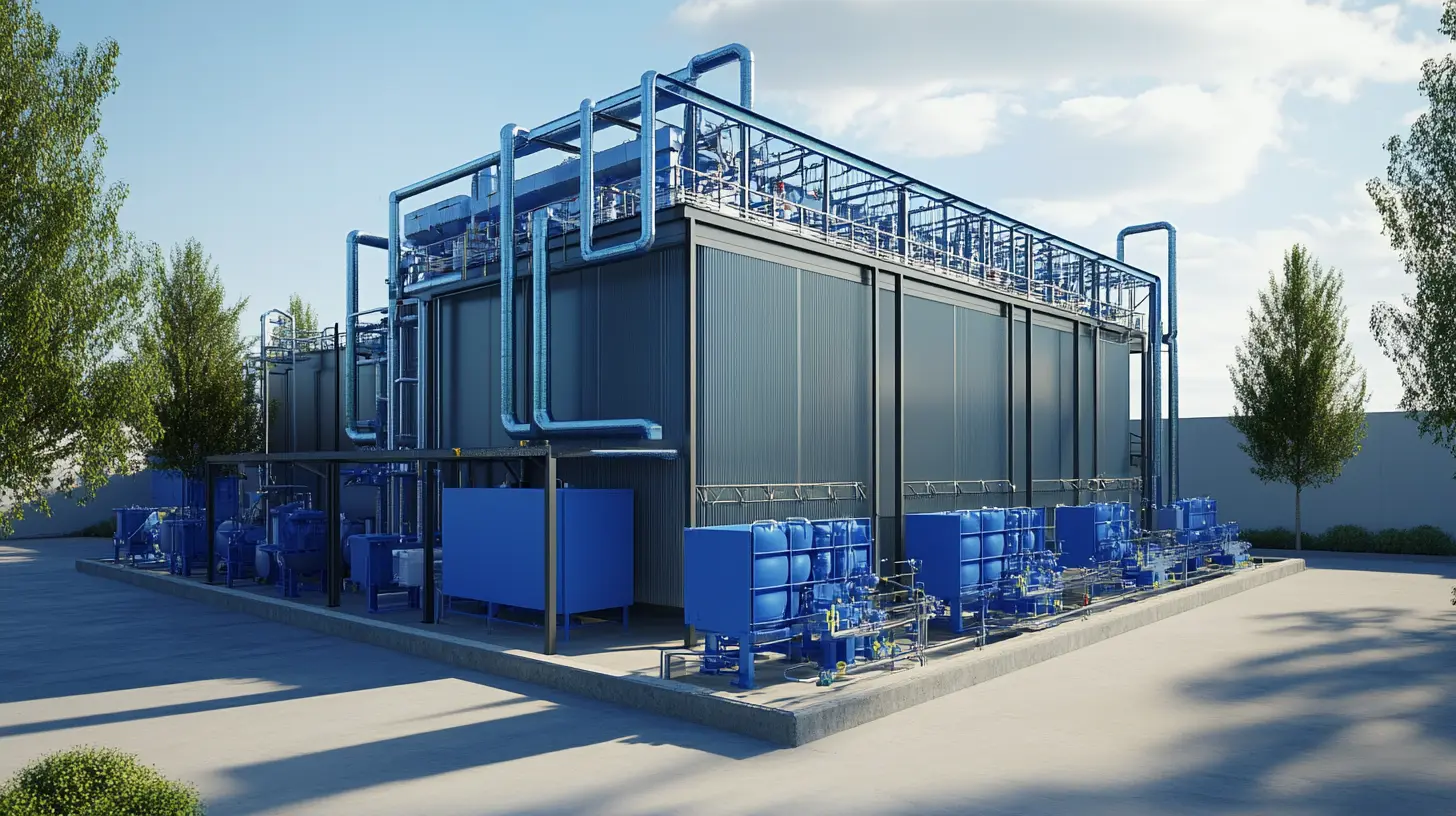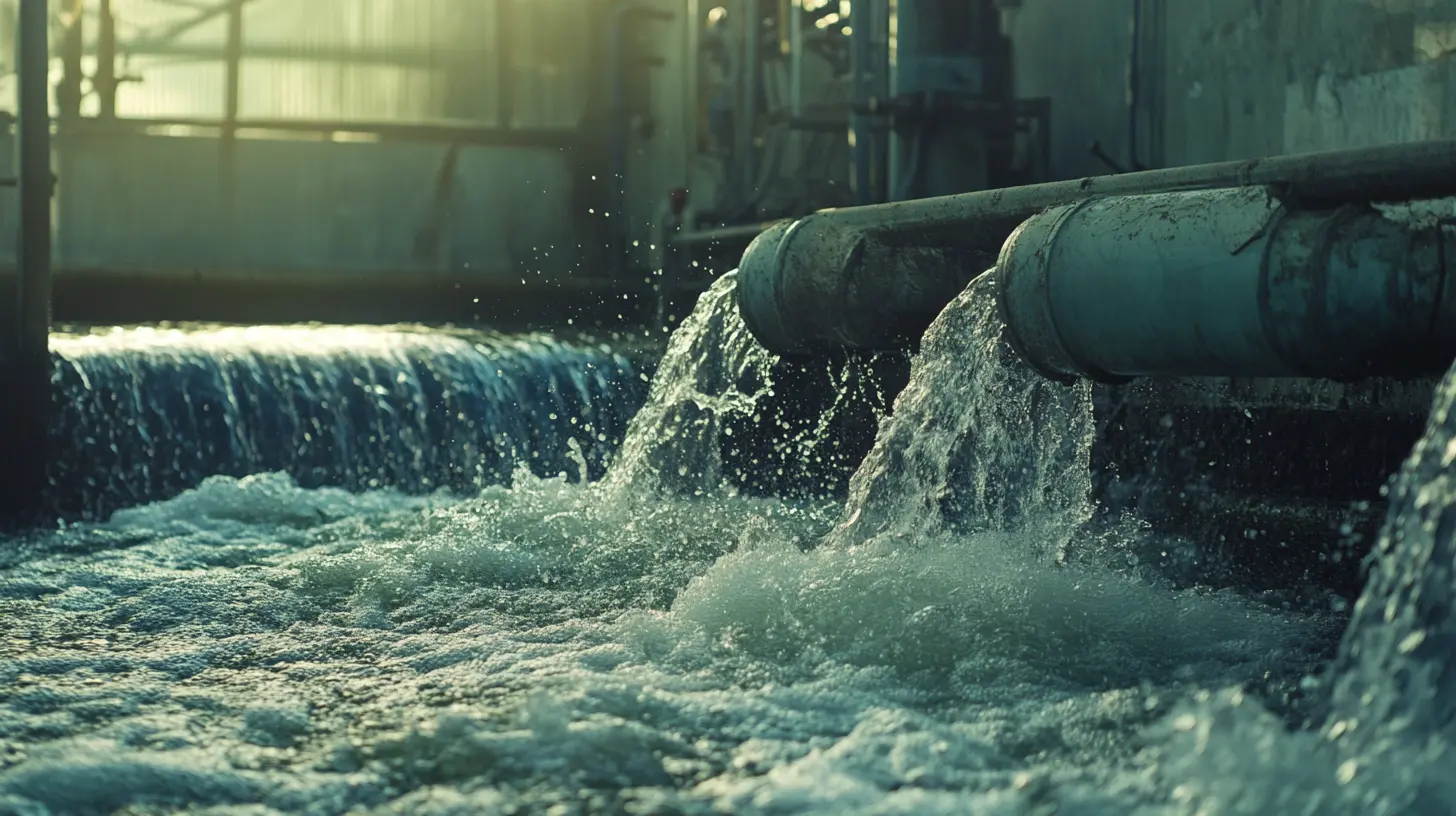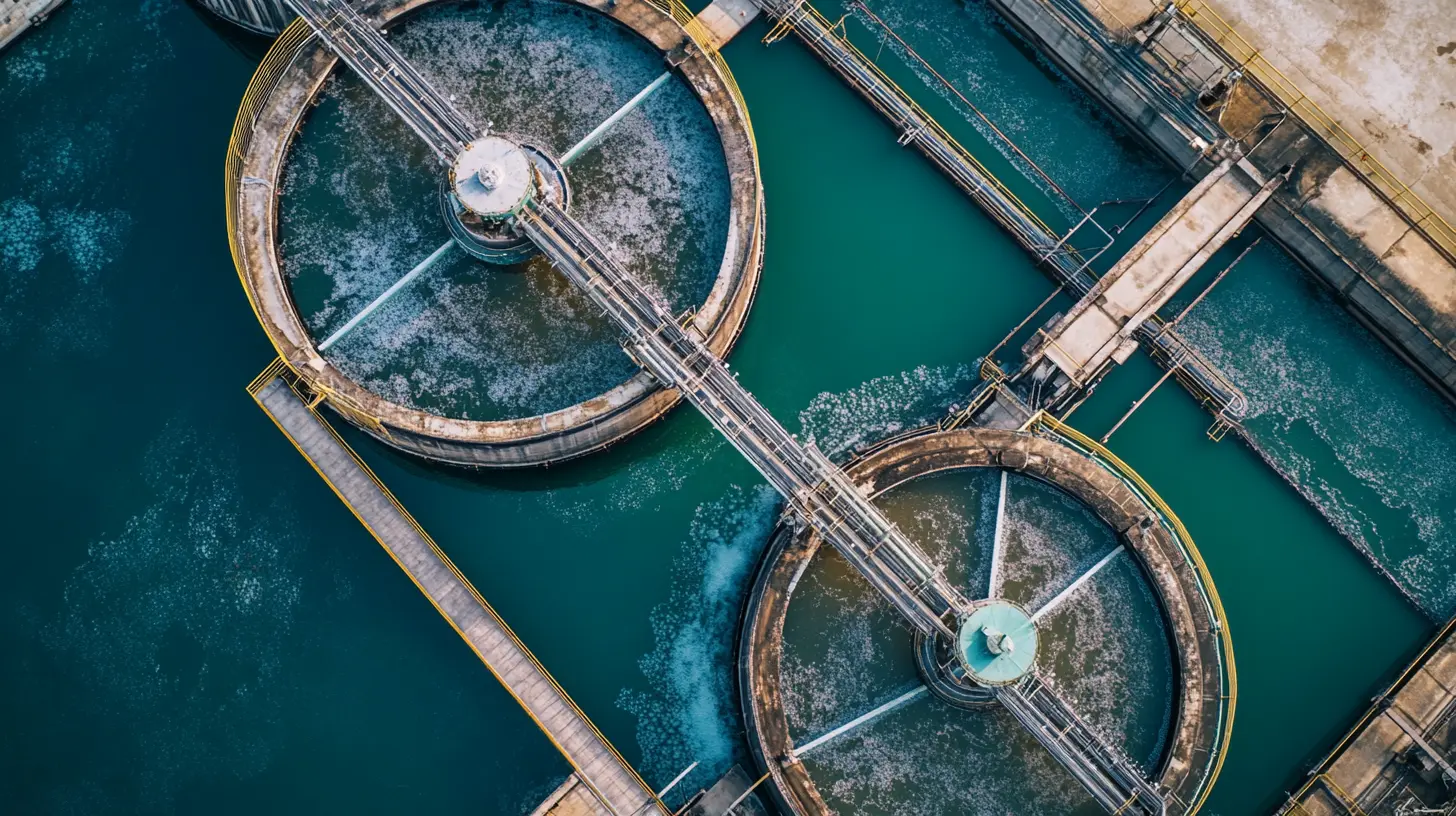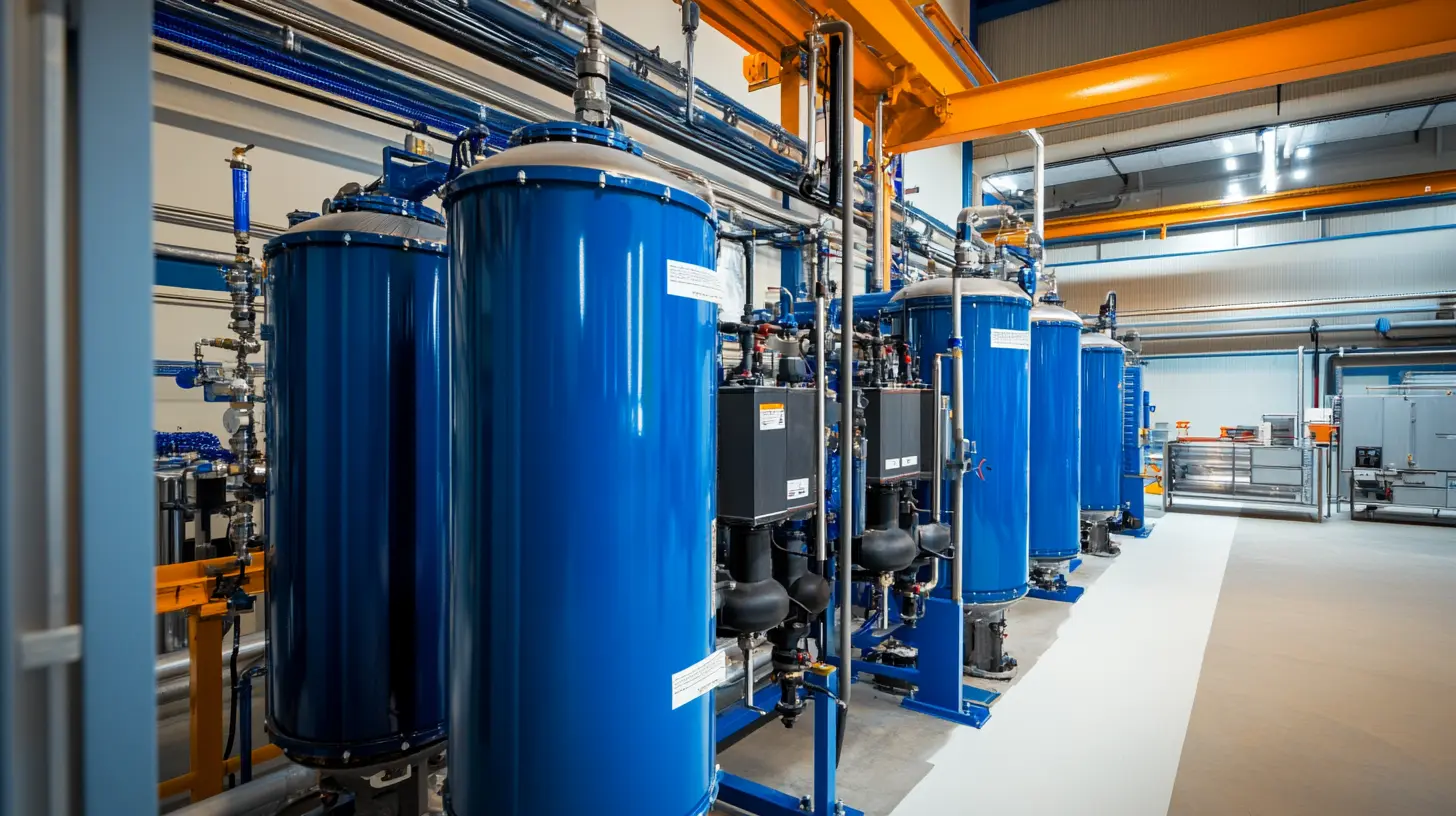
- sales@bjbod.com
- Mon - Sat at 7:00AM to 9:00PM

With dynamic changes in industrial technology and the increased emphasis on energy efficiency and sustainability, the Air Water Separator Filter is a very distinctive innovation that is changing operational practices in many industries. This state-of-the-art kind of equipment seems to improve energy efficiency while aiding in pollution abatement, hence putting companies to current environmental standards. Moisture separation from compressed air systems through Air Water Separator Filters may generate tremendous energy savings and possibly longer equipment life; all of which are pertinent in keeping any organization competitive in the current marketplace.
At Beijing BOD Technology Co., Ltd., we see the clear path that may integrate state-of-the-art solutions that promote operational excellence and environmental care. Founded in 2011, our company specializes in providing essential peripheral accessory equipment and environmental protection equipment, chiefly the Air Water Separator Filter. By focusing on the client needs and industry-specific requirements, we are committed to supplying products that enhance industrial efficiency while protecting the environment. Join us as we witness the implications of Air Water Separator Filters in modern times in boosting industry performance nd sustainability.

The filters for air-water separation are essential for any industrial process in this modern era as they optimize performance in terms of energy efficiency and the industrial process itself in terms of eco-friendly designs. These filters become indispensable in any industry that requires moisture to be separated from its air streams, such as compressor systems. According to a recent industry report, energy savings of nearly 30% can be achieved through enhanced efficiency of compressed air systems with the use of air-water separators. Such savings on operational costs would yield great benefits to manufacturers, thus making a strong case for investing in advanced filtration technologies. The 2022 Xi'an International Filtration and Separation Industry Exhibition indicates changing times with growing demand for innovative technology such as the air-water separator filter, as industries look for ways to meet stricter regulations revolving around emissions and pollution. Statistically, through the proper application of such systems in the filtration industry, a 35% reduction in pollutants can be obtained. This is especially critical in the sector of petrochemicals, where proper filtration mechanisms would avoid contaminants from negatively impacting the production domain. Likewise, high-pressure compressor technology was on full display in Xi'an, further underlining the urgent need for reliable air-water separation solutions. Air-water separators are increasingly relevant as industries embrace sustainable practices, bringing both economic and environmental benefits. This shift is in the spirit of global sustainability initiatives while also raising the efficiency bar of the industrial processes.

The use of air-water separator types of filters in industries has innovatively reshaped energy efficiency and environmental performance in many industries. These filters have been reported to save energy as much as 30% when compared with conventional filtration techniques in industries focusing their efforts in optimizing processes. Recent reports have shown that air-water separation can significantly reduce energy consumption in applications such as cooling systems and other uses. This results in a deemphasis of operational costs.
Such advanced filtering technology is appropriate for that global movement toward greening. One among these was industry report which recorded a sizeable increase in the demand for energy efficiency solutions, and a CAGR of 7.5% in the filter market was estimated over the next five years. This shift was partly fueled by regulations imposed for reducing pollution; thereby, air water separator filters played an important role in mitigating contaminants in industrial air emissions. Consequently, industries would enhance energy efficiency in a complementary way with meeting very strict environmental standards.
In an environment such as Shanghai, which is transforming and where businesses are investing more in research and development for new energy, air-water separation technologies thus take on more meaning. Industries, for instance, acquire the potential of energy savings while also putting pollution reduction on their target scopes, creating a more sustainable industrial setting. Those among the market that will embrace such technologies in time will, therefore, reap economic and ecological benefits.

As industries are moving towards sustainability, air water separator filters become a defining moment. The filtration systems ensure the process operation efficiency and take the role in pollution reduction. In fact, it separates the contaminants from water in the industrial process, minimizing the pollutant emissions to the surrounding environment, which becomes increasingly stringent on today's regulatory roofs.
With technological advanced filters in place, significant reductions in emissions can be realized. This has forced many industrial sectors to bend toward finding new ways of meeting their environmental goals because it has made stricter standards on vehicle emissions. Similar to changes that modern brewing facilities have initiated in creating a sustainable production system, air water separator filters would also reduce significantly the waste generated in industries and help water conservation in quite an innovative way.
Moreover, with stricter measures by various governments, industries that use such filters would now have some advantages over their competitors. Compliance with environmental regulations would serve as the reason for adopting these systems; they also have some indirect advantages of a cleaner and healthier ecosystem. As more evidences are piling up with regards to illness inflicted by both indoor and outdoor pollutions, the call becomes increasingly louder for industries to adopt technologies that keep the air and water cleaner for generations to come.

The important technological up gradation is represented by the air water separator filters in industrial processes. Instead of traditional sedimentation or gravitational separation, the air-water separator uses advanced mechanisms to remove the contaminants from the waste water and air streams. Standard separation methods are said to obtain a maximum separation efficiency of 70-85%, as cited in the International Water Association Report. Air-water separator filters improve that separation efficiency to over 95%. Improvements in performance mean improvements in energy savings and pollution reduction.
Energy efficiency includes low operating costs too. Industry studies have shown that these facilities shall cut the energy bill by as much as 30% as compared to regular installations. The U.S. Environmental Protection Agency supports this as a means for lower carbon emissions due to reduced energy demand. Hence air water separator filters lie on all grounds as a greener option available to Industries wanting to meet up with tougher environmental regulations.
Air water separator filters will often outperform common filter techniques in the removal of pollutants. As Clean Water Technology group examines, air-water separators are capable of removing heavy metals and petroleum hydrocarbons from wastewaters with very high efficiency, often 20 to 40 percent higher than conventional methods. And this not only ensures compliance with the environmental standards but also implies a lesser green footprint for the industries involved, thus underscoring the importance of air-water separators for the advancement of industrial application.
That is the data up to October 2023.
Air-Water Separator filters are applied throughout different sectors of the economy, modifying performance efficiency while at the same time reducing waste. Latest case studies demonstrate remarkable results in the oil and gas industry, the automotive, and the maritime sectors. For instance, advanced separation technologies now completely process oily wastewater in refining, over 90% recovery from hydrocarbons, and with reduced environmental impacts.
New systems include AWD separator systems in the automotive sector, which use the disengagement of four-wheel drive when unnecessary to engage two-wheel drive. This preserves energy as well as wear on the vehicle and therefore provides a direct selling argument for environmental sustainability.
Moreover, smart automatic separation technologies on board vessels in the shipping industry enhance the purification of both fuels and lubricants. Such systems are not just efficient but really high in maintainability, which leads to lesser emissions and lower operational costs. As one goes on, the progressive acquiring of industries into separator technology becomes that much more noticeable in terms of the cumulative ways energy and pollution savings impact the future of the environment in a more industrial way.
Today's industrial scenarios are increasingly stringently regulated, resulting in thrusts by companies to install advanced filtration systems that not only comply with regulatory laws, but also promote sustainability. One of these innovations is the most recent efficient air water separator filters that serve a vital current need affording great advantages in both energy savings and pollution reductions. According to the Environmental Protection Agency (EPA), industries that install high-efficiency filtration can reduce particulate emissions as much as 90% and meet the most recent air quality standards.
The benefits of this filtration system also transcend compliance. For example, the installation of high-tech air water separators could save nearly 30% energy in plants operating with water-cooled systems, according to the Department of Energy. These filters have a higher process efficiency and lower energy consumption and waste disposal operational costs. Thus, installing these systems would mean a double benefit for the industries: they comply with the environment but also lower their operational expenditure.
Today, the value proposition for efficient technologies does not just lie in compliance but rather in the competitive edge it provides. According to the International Energy Agency (IEA), organizations committed to sustainable practices not only face far fewer penalties, but also enjoy a much better reputation in the market and superior consumer loyalty. As businesses continue to innovate under the pressure of regulation and by popular consumer demand for sustainability, the role of air water separator filters will be even more crucial in defining cleaner and more efficient futures for industry.
In future, air water separator filter technology has promised a lot of innovations at present as industries are increasingly coming up with effectiveness measures and contending with the urgent problems of energy consumption and pollution. The air water separator plays a major role in almost all industrial processes. Thus, it develops separation efficiency, causing resource waste. Emergent technologies are poised to take these systems a step further, granting them advanced filtration means with better performance and future operational cost savings.
Above all, these recent discourses on Carbon Capture, Utilization, and Storage (CCUS) speak volumes about the immediacy of need for very cheaply priced solutions in the environmental sector. While the economics of CCUS is still not answered, innovations in air water separator technology could again pave a different way for emissions reductions for better sustainability. Smart features and automation into air water separation processes can substantially lower the operational costs, thereby putting an industry again at an attractive return on investment for green transitions.
This would further mean that in future, as the global tightening of ecological policies pursues these chains, there would be a very pressing demand for efficient air water separation systems. The forthcoming international filtration and separation industry exhibition Xi'an shall exhibit the newest innovations and excite collaborations among industry giants. Current business stands void of aligning with new filtration technologies. Thus a business can not only comply with regulations, but pave the way for a cleaner industry, more efficient in the future.
In the perspective of today's industry, investing in high-end air water separator filters becomes a cost-saving scheme that reaps much in the near future. According to the Environmental Protection Agency, industries with high efficiency filtration systems can attain energy savings of up to as much as 30%. This is translated into thousands of dollars of annual operation costs in lower overheads. It helps to relieve financial burden, but at the same time, improve productivity; the cleaner air and reduced water contamination create environments where processes flow better operationally with lower downtimes.
It has very wonderful environmental gains as well. According to the World Health Organization (WHO), air pollution causes the deaths of about 7 million people annually all through the world. So, if those emerging industries implement the advanced filtration technology, they will drastically reduce particulate and volatile organic compounds (VOCs) emissions, which are core contributions in fighting pollution. Studies recently published in the Journal of Industrial Ecology indicated that businesses within these technologies were able to reduce their carbon emissions by up to 25%, thus enhancing guiltless operational efficiency to the environment.
In fact, very often, the initial expense of such advanced filters becomes debited against future gains and health as well. Another study by the Institute of Clean Air Companies (ICAC) pointed out that for every dollar spent on air water separator filters, companies could expect between $3 to $5 in ROI in under five years mostly through energy savings and regulatory compliance. Increasingly stringent regulations on emissions and environmental standards indicate that these kinds of filtration technologies will pay for themselves not just in compliance but also in greening practices, thus making it an intelligent investment for the future-thinking industries.
The primary function of air water separator filters is to optimize performance by separating moisture from air streams, particularly in compressor systems, which enhances energy efficiency and reduces environmental impact.
The implementation of air water separator filters can lead to energy savings of up to 30%, significantly reducing operational costs for manufacturers.
There is a growing demand for air water separator filters due to stricter regulations on emissions and pollution, compelling industries to adopt innovative filtration solutions.
Effective use of air water separator filters can lead to a 35% reduction in pollutants, which is crucial for industries like petrochemicals.
Advanced air water separators help industries comply with stringent regulations by reducing particulate emissions by up to 90%, as per the Environmental Protection Agency (EPA).
Beyond compliance, air water separator filters enhance process efficiency and lead to energy savings, contributing to lower operational costs related to energy consumption and waste disposal.
Companies that prioritize sustainable practices, including the use of efficient air water separators, can enhance their brand reputation and customer loyalty, making it a competitive differentiator.
The use of air water separator filters aligns with global sustainability goals, decreasing the environmental impact of industrial operations by reducing emissions and promoting cleaner air quality.
Air water separator filters are especially crucial in sectors such as petrochemicals, where they prevent contaminants from adversely affecting production processes.
As industries aim for more sustainable practices, the integration of air water separator filters will become increasingly important in enhancing overall efficiency and achieving environmental sustainability.
